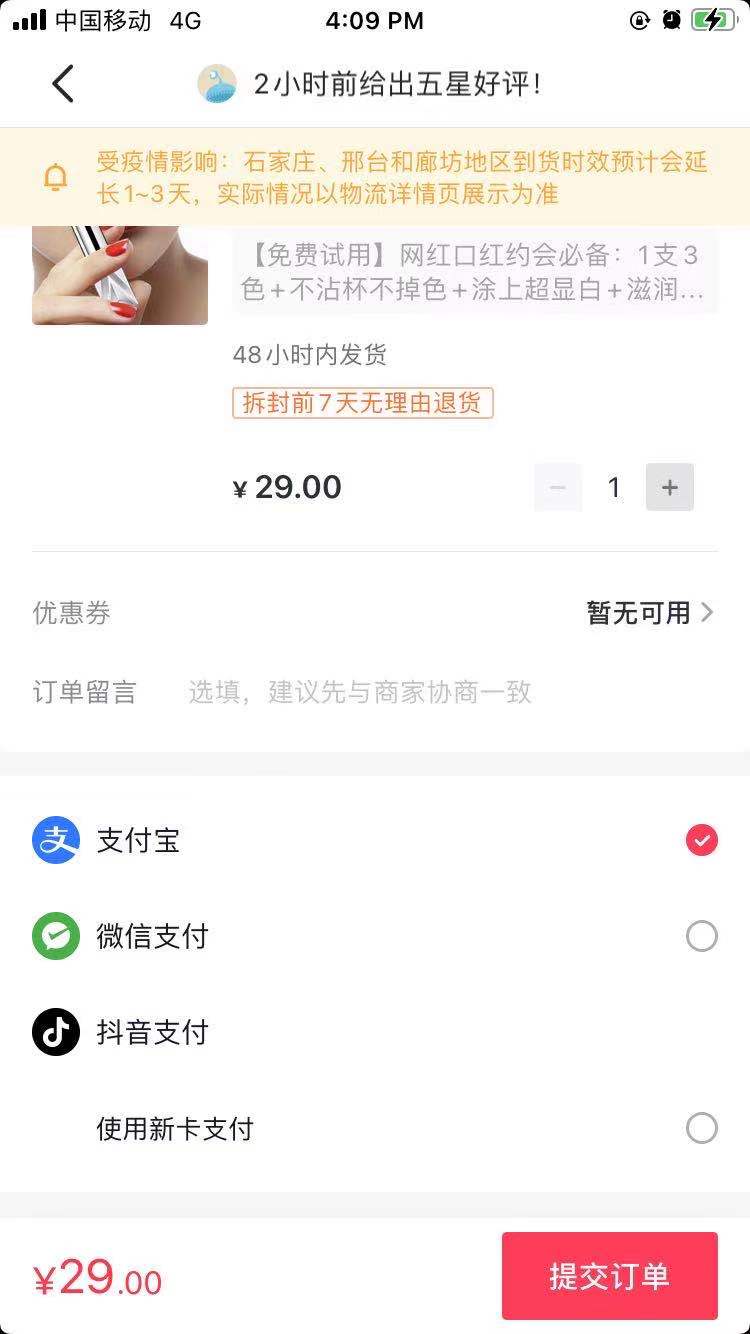Tencent’s WeChat Pay and Alibaba’s affiliate Alipay have long dominated digital payments in China, but they have always faced new challengers. The latest entrant in online payments is Douyin, TikTok’s Chinese version.
The short video app recently added “Douyin Pay” to its list of existing payment options, which have included Alipay and WeChat Pay.
“The set-up of Douyin Pay (Douyin Zhifu) is to supplement the existing major payment options, and to ultimately enhance user experience on Douyin,” a Douyin spokesperson said.
Payment is a natural step for Douyin, which has a growing e-commerce business. Users can be directed to a product link while watching a video of an influencer reviewing, say, a lipstick. Instead of the ubiquitous WeChat Pay and Alipay, they may opt for Douyin Pay one day, if the incentives are great enough.
Other internet giants, such as e-commerce giant JD.com and food delivery service Meituan, have also tried luring people to use their own payment methods, though the market duopoly is hard to break. All in all, Alipay and WeChat Pay handle about 90% of China’s electronic payments.
Like other internet firms, Douyin parent ByteDance snapped up a coveted payments license by acquiring a third-party payments firm. Last September, a company controlled by ByteDance founder Zhang Yiming bought out a payments solution provider called Wuhan Hezhong Yibao Technology Co. The license, in turn, allows Douyin, Toutiao and other ByteDance services to offer payment features.
Users can, for instance, receive a cash-filled electronic red packet from a Douyin campaign and deposit that cash to their bank accounts.

Douyin Pay
The rollout of Douyin Pay seems well-timed with the upcoming Chinese New Year holiday, a time when families and friends gift each other red packets. Over the past decade, WeChat has been popularizing electronic versions of these auspicious money-filled envelopes, which helped WeChat Pay take off in the early days.
Douyin inked a deal with Chinese state broadcaster CCTV to be its red envelope technology provider for the Spring Festival Gala, traditionally a major advertising event of the year, according to Chinese business news provider LatePost. Alibaba’s young rival Pinduoduo had a similar deal last year in an attempt to grow its own payments users.






















